But sure, I cheat a little and carry my karambit. You know, just in case.
Managing your emotions
It was another one of those sweltering-hot summer days in Mosul, Iraq. When the breeze blew, it felt like you were staring into a hair dryer. I was a corporal in Ranger Battalion at the time and had just come off a mission where the task force had collectively opened fire (the rest of that story is explained below) on a terrorist named Zayad. Someone had opened up his body bag and a couple staff officers were crouching over the corpse. Flies were buzzing around his face, one of them crawling across his eyeball. His body was covered with bullet holes.
“So what’s the deal with clown shoes?” I asked. “Is he dead or what?”
The two staffers looked up at me in horror.
Murder your emotions, cupcake. They are not that important in the first place. I guess this is where being a military veteran helps in my case. Just accept the reality that war is an ugly thing and a lot of people are going to die, because that is exactly what you’re going to see.
To be realistic though, even coldhearted assholes have to manage their emotions. Sometimes you have an emotional attachment to a story that can drive you to do reckless things. A sense of empathy can get away from you and cause you to over-commit to something or someone. Keep a sense of humor about things and travel with people who are able to tell jokes in the middle of a firefight; it helps lighten the mood a bit.
Recognize that you ain’t in Kansas anymore. Your rules don’t apply here. With this in mind, you are going to have to alter your worldview and accept some things that we would never accept here in the United States. I also have to caution you about the other side of the spectrum. I’m talking about engaging in behavior that is ethically, legally, and morally questionable. Not only could you get in a shitload of trouble with the local government and our friends at the FBI back home, if you do something out of character that “seemed like the cool thing to do” in the heat of the moment, you may find yourself with an acute case of PTSD down the line.
All of these things relate back to managing your emotions. Don’t forget who you are and where you come from, but accept that you are now existing within a wider context of war which probably grates against some of your personal values. It is an emotionally challenging arena, but the diehards will embrace a venue such as this. Getting down in the dirt without losing sight of who you are may be the ultimate challenge that any of us can face.
When to leave
It was the middle of the night at a Kurdish militia base in Syria. I ran down the steps of the converted luxury apartment complex where foreign volunteer soldiers and female Kurdish snipers were living. Outside, I turned on my Petzl headlamp and began searching around the entire compound. I was sweeping back and forth, casting light into the shadows. I was looking for a dead body.
My main point of contact in Syria was a foreign fighter. Only after I got there did I realize that he was batshit crazy. He was all over the emotional spectrum. Sometimes he would be crying, other times he would be quite normal. Sometimes he would talk about how he relished killing people, and then sob that someone took his AK-47 months ago. He had been pestering the female snipers for a rifle they had that he claimed was his. After starting fights and pissing people off, he finally just disappeared into the night.
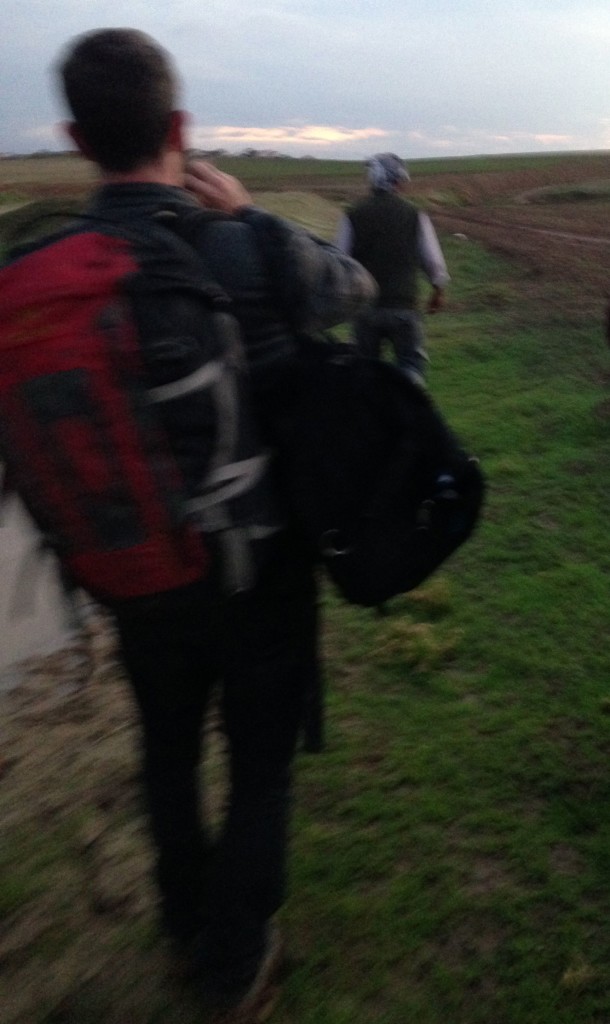
It was at that moment, as I frantically ran around a Kurdish militia compound in Syria sometime around midnight with a flashlight looking for my former friend who I was sure had walked off to commit suicide, I realized I had overstayed my welcome in Syria. I had fucked up royally by putting my trust in the wrong people, and it was time to get the fuck out of Dodge.
I implore you to make similar sound judgements when reporting from a war zone. When things get really bad, understand that sometimes the best thing you can possibly do is walk away. By the way, I did eventually find my guy alive, but not well. He was just visiting his friend in the torture center next door.
Returning home
Ah, back in the land where everything is bigger, from double quarter-pounders to double-stuff Oreos. America! Many journalists work under a deadline, which I understand, but personally I prefer to wait until I get home before publishing. I might start writing overseas, but I would rather not tip the world off to where I am if I can help it.
Now it is time to assemble your video, pictures, and interviews that you have collected throughout your travels and see what you got. By this time you should already have a pretty good idea of which stories you have in the bag and which you completely missed. Follow-up and fact-checking will be required here as well. Another important thing to keep in mind, especially in war reporting, is that you saw the war from your point of view.
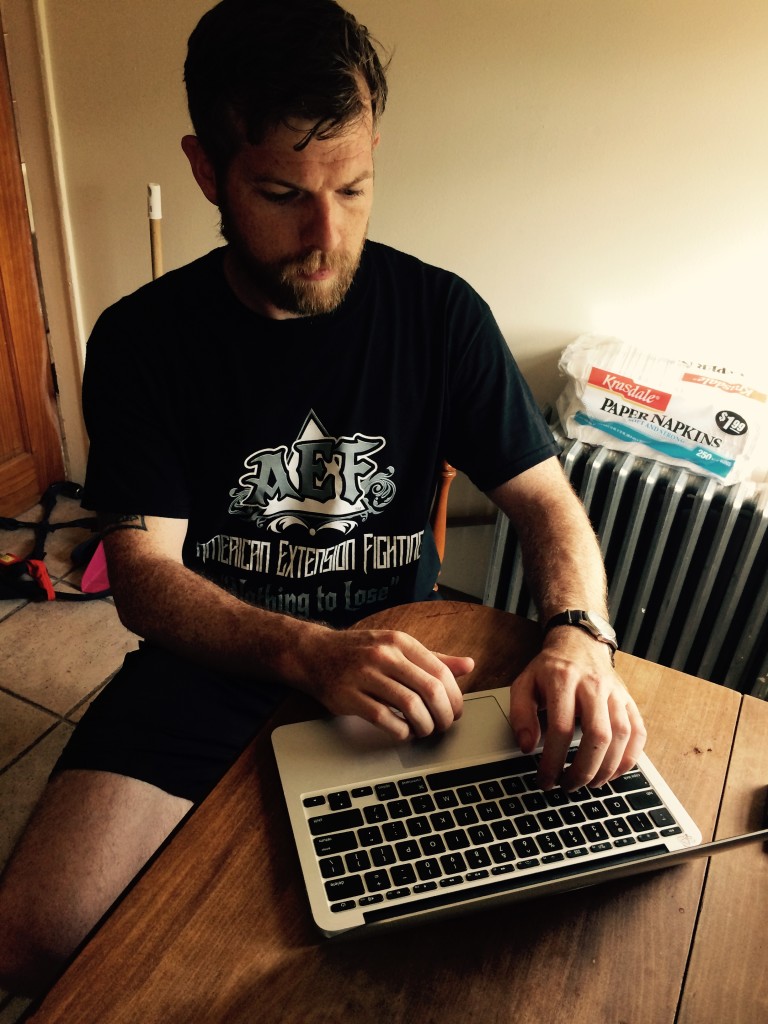
I’ve been in battles where I saw something quite clearly, but others later related to me that they saw something else. I don’t want to get into some kind of Rashomon deal here because I don’t believe in subjective truth, but here is an example to illustrate what I mean. Back in the day, I was in 3rd Ranger Battalion, which was one part of Task Force North. Our job was the cruise around Mosul, Iraq, hunting for high-value targets. We kept chasing this one terrorist named Zayad all over town. When we finally caught up with him, he tried to “squirt” off the objective, which just means he attempted to cut and run.
I was in the lead vehicle and saw the entire thing go down with my own eyes. Zayad was in the open, walking through the desert, away from his safe house, looking over his shoulder at us angrily. I was on comms talking to my .50-cal. gunner and I walked him on target. Then he gave him a burst. Fifty-caliber rounds are about the size of your finger, and the line of auto-fire sent up little geysers of sand in front and behind Zayad. He dropped to the ground, but amazingly was not hit in the initial burst. Meanwhile, the rest of the task force was behind my vehicle and Rangers were pouring out of the back of our eight-wheeled Stryker armored vehicles.
As my .50 gunner prepared to fire another burst, I shit you not, the entire task force opened up on Zayad. Riflemen, SAW gunners, snipers, everything all at once. Suffice to say that Zayad went down for the count this time. We bagged Zayad up and brought him back to our FOB in Mosul. Walking off the back of the vehicle, the first thing I heard was our op’s sergeant major at the time bragging about how he bagged himself a terrorist. “I really had to lead him with my Aimpoint!” he said with a grin.
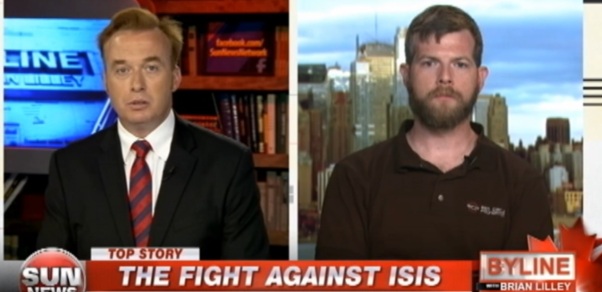
Walking past our operations center later that day, a medic who had been watching the drone footage while we were out there told me in unequivocal terms that Zayad had been holding a pistol and shooting over his shoulder at us. “Yeah, you could see it all on the video,” he insisted after I started laughing. Old boy didn’t have a pistol and certainly wasn’t shooting at us. It didn’t matter because our rules of engagement allowed us to fire on squirters, but I suspect someone in the OPCEN wanted to cover their ass just in case questions were asked. I never made a big deal about it—Zayad wasn’t worth it—but I still chuckle when people to this day try to lecture me about how that firefight went down.
I’ve found some of the same dynamics at play in battles I’ve covered as a writer. This isn’t because of deception or bragging, though. As one person on a battlefield with hundreds of people, you see things from one perspective. Others see things that you didn’t. Talking to others who were there can help you fill in the gaps in your story. Never assume that you have the entire truth behind what happened.
You have your piece of the jigsaw puzzle, but there are other pieces to collect.

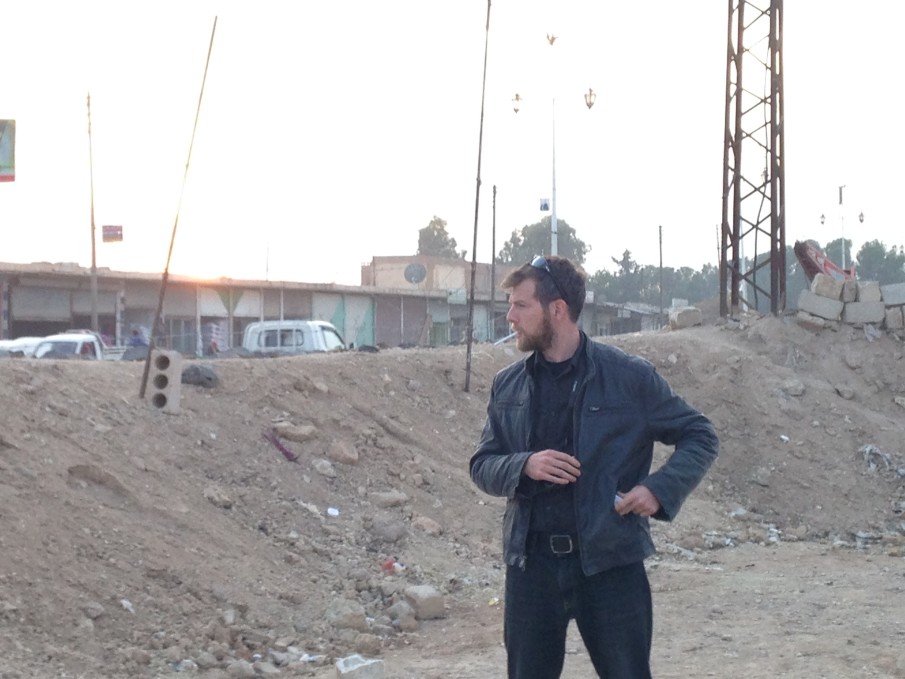

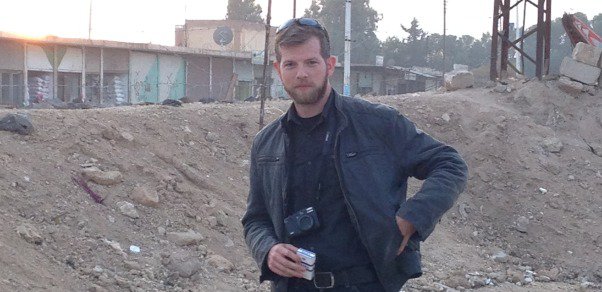








COMMENTS